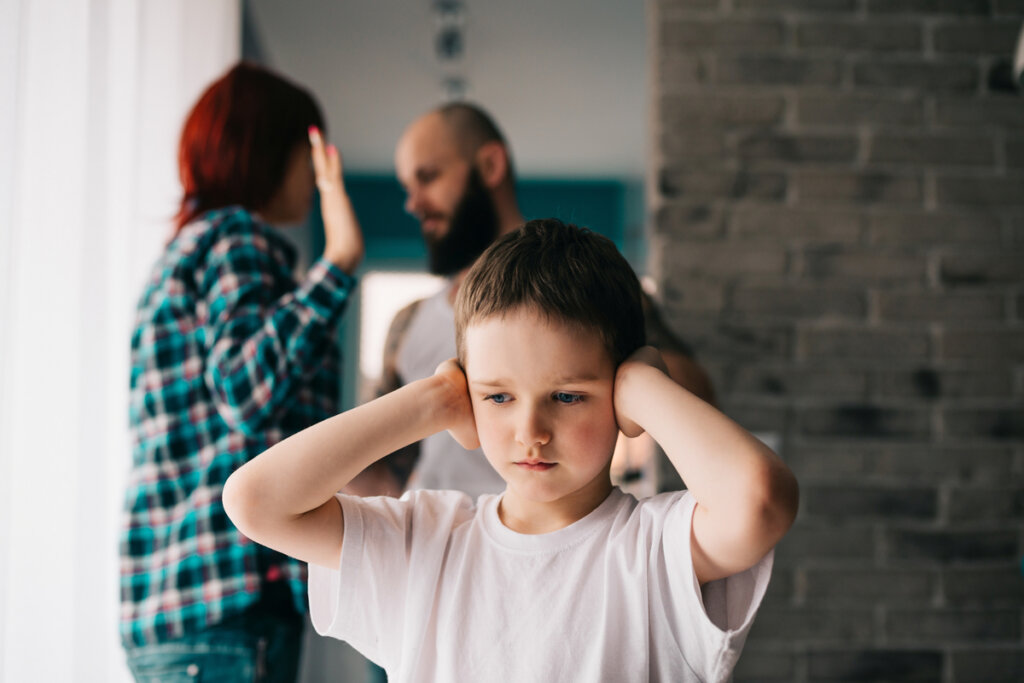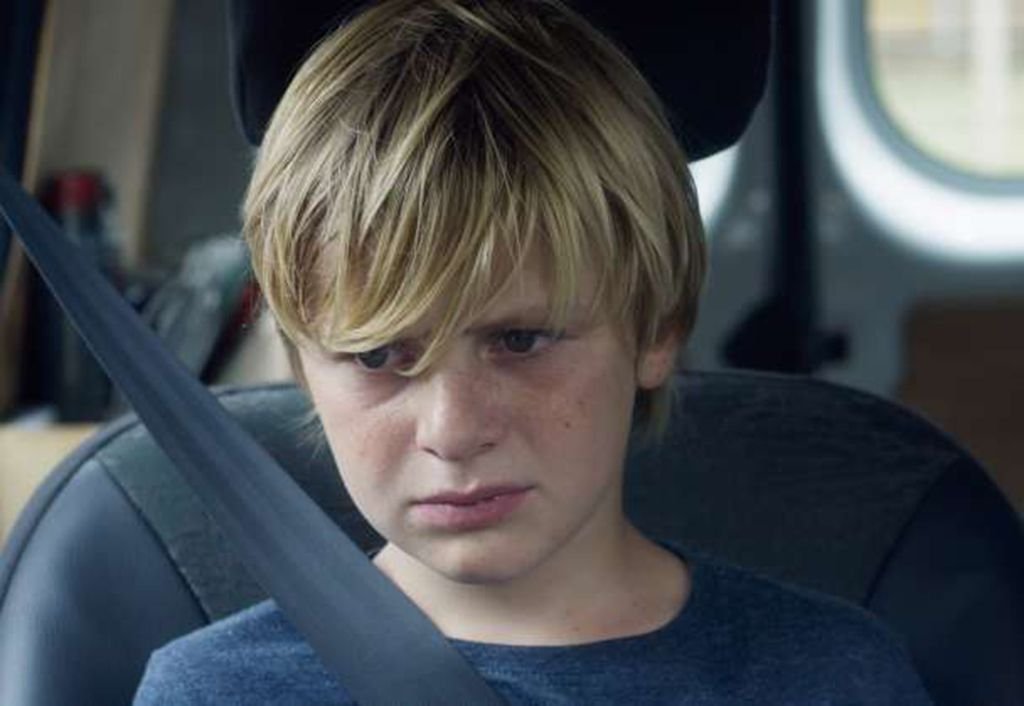Older Siblings Suffer More From Parental Conflict


Written and verified by the psychologist Valeria Sabater
Are you the eldest of your siblings? If so, you may well have found this role uncomfortable at some point. That’s because being the firstborn often means you have to grow up faster and possibly take on responsibilities earlier than you should. It may even be that you’ve developed a more authoritative personality or that you try to help anyone and everyone.
As always, there are exceptions. However, in family dynamics where there are older and younger siblings, each one of them ends up assuming a place in the relational framework. This conditions them in many different ways. In fact, what happens in childhood and adolescence ends up sculpting our personalities for life.
One fact that’s worth mentioning is that when parents aren’t available, it’s the older sibling who tends to assume the protective role of their younger brothers and sisters. Indeed, in these contexts that are dominated by mistreatment or disagreements between parents, the elder children are forced to mature in a hurry.
We’re the result of many of the pathological dynamics that we experience in childhood. The fact of facing certain situations together with our siblings could reduce the psychological impact of these events.

Older siblings in the midst of parental crises
Birth order doesn’t determine personality. It’s more influenced by the social context that surrounds us. For example, when a child of twelve, thirteen, or fourteen years old has to assume the role of their unavailable parents for their younger siblings.
We’re conditioned by the environments in which we grow up and the dynamics with our caregivers. In turn, in this process of development and emergence of character, interaction with siblings is also key.
A study conducted by Purdue University (India) claims that the relationship established between siblings can foster social learning, attachment style, and many personality traits in children. Indeed, it seems that these figures are as decisive as our parents. In fact, they sometimes even become the mainstay in promoting and protecting our psychological well-being.
These situations tend to occur in dysfunctional families. When there’s interparental conflict, older siblings are the most affected. As a rule, they end up acting as mediators between their parents or as caregivers for their siblings.
Conflict between parents can have a great emotional impact on children. However, when there’s an older sibling, this circumstance can be mitigated by them acting as a protector of their younger brothers and sisters.
The buffering effect and unavailable parents
It’s often taken for granted that when there’s a conflictive relationship between parents, there’s usually also a conflict between siblings. But it’s not always like this.
Parents act as the social model that children tend to imitate. Dynamics dominated by disputes, shouting, and reproaches generate a chaotic and insecure atmosphere. The ‘buffering’ effect means that the figure of an older sibling can change everything. It means that when parents aren’t available, that sibling assumes the role of the adult. They become the emotional and physical support of their younger brothers and sisters. In effect, they take over, give their siblings security, and become their main source of valid and positive attachment.
Older children and undemanding emotional baggage
A study conducted by the University of Edinburgh (UK) in 2017 stated that, on average, older siblings have a higher IQ than their younger siblings. It’s due to the fact that these children receive more stimulation, attention, and support than the younger ones who come later.
So, what happens in the homes in which the caregivers are unavailable or carry with them a certain amount of conflict? In these situations, children are forced to grow up quickly and take on tasks and responsibilities that don’t belong to them. They’re children who possess greater maturity in emotional intelligence. In addition, they’re often forced to mediate their own parents’ problems.
Not only does the obligation fall on them to care for their younger siblings, but they often also have to act as caregivers to their own parents. There’s no evidence to confirm whether or not this raises their IQs. However, they often carry an emotional burden that’s ultimately traumatic and counterproductive.

The wounds of parentification
Parentification is a term that was coined by the psychiatrist Iván Böszörményi-Nagy. It defines those situations in which a child assumes the role of an adult, thus replacing their own parents. The fact that an older sibling has to be the caregiver for their younger siblings and parents is a form of psychological abuse.
Indeed, many of those who’ve been in this situation know that it doesn’t always make them stronger but leaves them with abysmal gaps. That said, there may, of course, be inter-individual differences. Nevertheless, as a rule, it involves the loss of their childhood and a distortion of their identity. In effect, by having to be the kind of figure that provides support, security, and affection to their loved ones, they grow up without receiving these benefits themselves.
Therefore, they tend to carry with them the scars of trauma and unattended needs. However, no one should be deprived of their own childhood by taking on tasks that don’t correspond to them. Childhood is sacred and children should be loved, unconditionally, at all costs.
All cited sources were thoroughly reviewed by our team to ensure their quality, reliability, currency, and validity. The bibliography of this article was considered reliable and of academic or scientific accuracy.
- Ana Nuevo-Chiquero, and Marian Vidal-Fernandez. The Early Origins of Birth Order Differences in Children’s Outcomes and Parental BehaviorJ. Human Resources 0816-8177; published ahead of print November 2, 2016,
- McHale SM, Updegraff KA, Whiteman SD. Sibling Relationships and Influences in Childhood and Adolescence. J Marriage Fam. 2012 Oct 1;74(5):913-930. doi: 10.1111/j.1741-3737.2012.01011.x. PMID: 24653527; PMCID: PMC3956653.
- Whiteman SD, McHale SM, Soli A. Theoretical Perspectives on Sibling Relationships. J Fam Theory Rev. 2011 Jun 1;3(2):124-139. doi: 10.1111/j.1756-2589.2011.00087.x. PMID: 21731581; PMCID: PMC3127252.
This text is provided for informational purposes only and does not replace consultation with a professional. If in doubt, consult your specialist.








